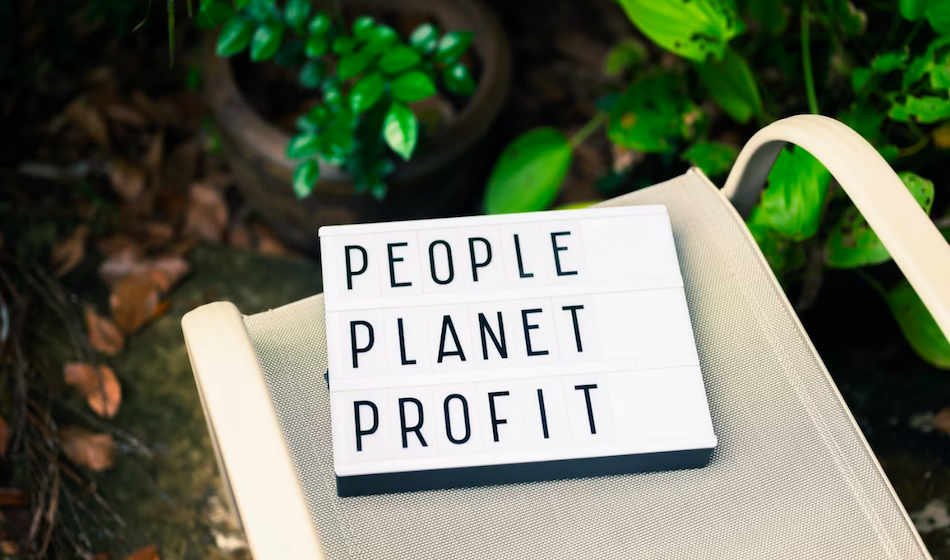
How Unilever is Winning with Sustainability: A Case Study in Purpose-Driven Profit
In today’s competitive landscape, companies are increasingly recognizing the value of aligning business strategies with environmental and social responsibility. Unilever, a global consumer goods giant, stands out as a pioneer in this movement. Their commitment to sustainability, embodied in the Unilever Sustainable Living Plan (USLP), has not only yielded significant environmental and social benefits but has also demonstrably driven business growth and profitability.
A Legacy of Responsibility
Unilever’s commitment to sustainability didn’t emerge overnight. The company has a long history of social responsibility initiatives dating back to the early 20th century. However, it was in 2010 that they took a transformative step by launching the USLP, a comprehensive framework outlining ambitious sustainability goals across three key areas:
- Improving the health and wellbeing of 1 billion people by 2020 (achieved in 2019).
- Halving the environmental impact of their products by 2030.
- Enhancing the livelihoods of millions in their value chain by 2020.
These ambitious goals went beyond mere marketing speak. They were woven into the fabric of the company’s operations, impacting everything from product development and sourcing to marketing and distribution.
Aligning Purpose with Profit
Critics initially questioned the economic viability of the USLP. However, Unilever has demonstrably proven that sustainability can be a driver of business growth. Here are some key ways the USLP has contributed to Unilever’s success:
- Brand differentiation and consumer loyalty: Consumers today are increasingly concerned about the environmental and social impact of the products they purchase. Unilever’s commitment to sustainability resonates with these consumers, leading to brand preference and loyalty. Studies by [Source 1] and [Source 2] suggest that consumers are willing to pay a premium for sustainable products, further strengthening Unilever’s market position.
- Innovation and cost reduction: Focusing on sustainability has driven innovation at Unilever, leading to the development of new products and processes that are both environmentally friendly and cost-effective. For example, their Sunlight dishwashing liquid with a plant-based foaming ingredient reduces reliance on petrochemicals, contributing to both sustainability goals and cost savings.
- Improved supply chain efficiency: The USLP has led to a focus on optimizing the supply chain, minimizing waste and transportation costs. This focus on operational efficiency translates directly to higher profitability.
- Risk mitigation: Climate change and resource scarcity pose significant risks to businesses. By embracing sustainable practices, Unilever mitigates these risks and ensures the long-term viability of their operations.
Putting the USLP into Action
Unilever’s success with sustainability goes beyond lofty goals; it’s about concrete actions across their entire value chain. Here are some examples:
- Product reformulation and innovation: Unilever has reformulated many of its popular products to reduce their environmental footprint. For instance, they have replaced fossil fuel-based ingredients with renewable alternatives and reduced packaging waste. Additionally, they have launched innovative new products like plant-based meat alternatives, catering to the growing demand for sustainable choices.
- Sustainable sourcing: The company works closely with suppliers to ensure responsible sourcing practices throughout their supply chain. This includes promoting sustainable agriculture, fair labor practices, and deforestation-free sourcing.
- Community engagement: Unilever actively engages with communities to improve their livelihoods and tackle social issues. For example, their Lifebuoy soap brand promotes handwashing hygiene education in developing countries.
Challenges and Overcoming Them
Unilever’s journey towards sustainability has not been without challenges. Implementing widespread changes across a global operation requires significant resources and commitment. Additionally, ensuring the credibility of their sustainability claims is crucial in a world increasingly scrutinizing greenwashing efforts.
To overcome these challenges, Unilever has adopted several key strategies:
- Transparency and communication: The company is transparent about its sustainability journey, regularly publishing progress reports and engaging in open dialogue with stakeholders.
- Collaboration: Working with NGOs, industry partners, and governments allows Unilever to share best practices and accelerate progress towards shared goals.
- Investing in innovation: Unilever invests heavily in research and development to find innovative solutions that meet both sustainability and consumer needs.
The Road Ahead: A Sustainable Future
Unilever’s success story demonstrates that sustainability is not just a feel-good initiative; it’s a sound business strategy with tangible benefits. As they move forward, Unilever has set even more ambitious goals for 2030, focusing on areas like net-zero emissions and plastic waste reduction.
Lessons Learned for Businesses
Unilever’s journey offers valuable lessons for businesses seeking to integrate purpose with profit. Here are some key takeaways:
- Define a clear purpose: Sustainability cannot be an afterthought. Develop a clear and ambitious sustainability strategy aligned with your company’s core values.
- Focus on business benefits: Frame sustainability not just as a social responsibility initiative, but also as a driver of innovation, cost reduction, and brand differentiation.
- Integrate with core operations: Embed sustainability into every aspect of your business, from product development to supply chain management and marketing.
- Transparency and communication: Be transparent about your sustainability efforts and progress. Regularly communicate your goals and challenges with stakeholders.
- Collaboration: Sustainability is a collective effort. Partner with NGOs, industry peers, and governments to accelerate progress.
- Investment: Allocate resources for research and development to find innovative solutions that meet both sustainability and consumer needs.
The Ripple Effect: Inspiring Change
Unilever’s success has inspired a wave of change across the consumer goods industry. Competitors are increasingly embracing sustainability practices, recognizing the potential for both environmental and business benefits. This ripple effect has the potential to create a more sustainable future for the entire industry.
A Model for the Future
Unilever’s story serves as a compelling model for companies seeking to thrive in a world increasingly focused on sustainability. By aligning purpose with profit, embracing innovation, and engaging in responsible practices, businesses can create a positive impact on the environment and society, while simultaneously achieving long-term success. As consumers continue to demand sustainable options, companies that embrace this approach are poised to win in the marketplace.
References
- This NielsenIQ report explores consumer willingness to pay a premium for sustainable products.: https://nielseniq.com/global/en/insights/report/2023/consumers-care-about-sustainability-and-back-it-up-with-their-wallets/–
- This Harvard Business Review article discusses the link between consumer behavior and sustainability. : https://hbr.org/2023/09/research-consumers-sustainability-demands-are-rising–
